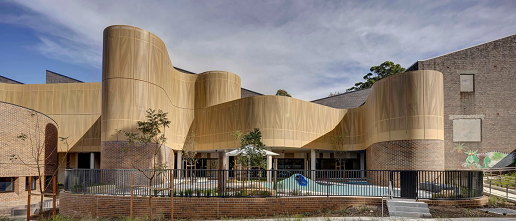“There were only five twenty-year-old girls at the beginning of ‘Twenty (Er Shi)’” Zhuo, Jie-Rong, a junior in National Chung Cheng University currently majoring in Finance. She speaks softly, but when she discusses the motivation behind founding "Twenty," you can hear the greatest faith in her tone
"'Er' stands for 'second-generation immigrants,' and 'Shi' represents the wish to recapture wonderful experiences and memories. The second-generation members of Twenty (Er Shi) shared the mentality that they were afraid to acknowledge their identities and that they did not comprehend the cultures of their parents' home countries. In order to advance the first stage of cultural identity to elementary and middle schools, they specifically participated in the "Youth Soul Lab of Chiayi County Government" proposal. By organizing the "Culture Camp of TWENTY x CCU," they helped children of new immigrants not only understand the cultures of their parents' country of origin, but also their own value.
The team photo of Twenty of National Chung Cheng University Photo provided by Zhuo, Jie-Rong
During the epidemic, the members were worried that the activities would not went smoothly, but it turns out that the results move everyone. When a high school student filled out the feedback form, he said that a second-generation immigrant student in his class had been discriminated. At that time, he wanted to help, but he never stood up. He noticed the activities of culture camp afterwards and felt he must participate and support the activities.
The members were concerned that the events would not go as planned during the pandemic, yet it turns out that the result move everyone. On the feedback form, a high school student said that a second-generation immigrant student in his class had faced discrimination. At that time, he wanted to help, but he never stood up. He noticed the activities of culture camp afterwards and decided to participate and support the activities.
“They think that it’s meaningful to organize such activities.” According to Zhuo, Jie-Rong, a parent particularly joined the exhibition after the activities and the feedback, which ensures their commitment to be continually focused on the challenges of new and second-generation immigrants.
In addition, the camp also trained numerous seed talent college students to have different integration in the activities. A few days ago, the team collaborated with local Southeast Asian restaurants in Chiayi to not only set up stalls for everyone to taste foreign cuisines, but also rolled out map postcards and discount coupons of Southeast Asian restaurants. Through shopping, people can also get to know the stores and the lives of new immigrants better.
“Culture camp gives me the meanings of regaining the identity.” Zhuo, Jie-Rong said. In the past, the issue of second-generation immigrants was just like having a delicious dinner to her; it was not impressive, and it didn't matter. “I realized that there are a lot of people like me after organized the culture camp.”
“Although the preparation process is very tough, if you want to promote culture, of course you can't just do it once!” the members were once asked by the teachers in National Chung Cheng University if they want to continue organizing the activities. “Our goal is to accompany new immigrants and second-generation immigrants until they are able to seek their own identity and roots and share their cultures on their own.” In Zhuo, Jie-Rong’s words, while second-generation immigrants need to stand on their own feet, Taiwanese takes an important role too. “Whether they can be open-minded, accept them, and accept new cultures, both parties need to coordinate with each other to create new sparks.”

1220.jpg)





